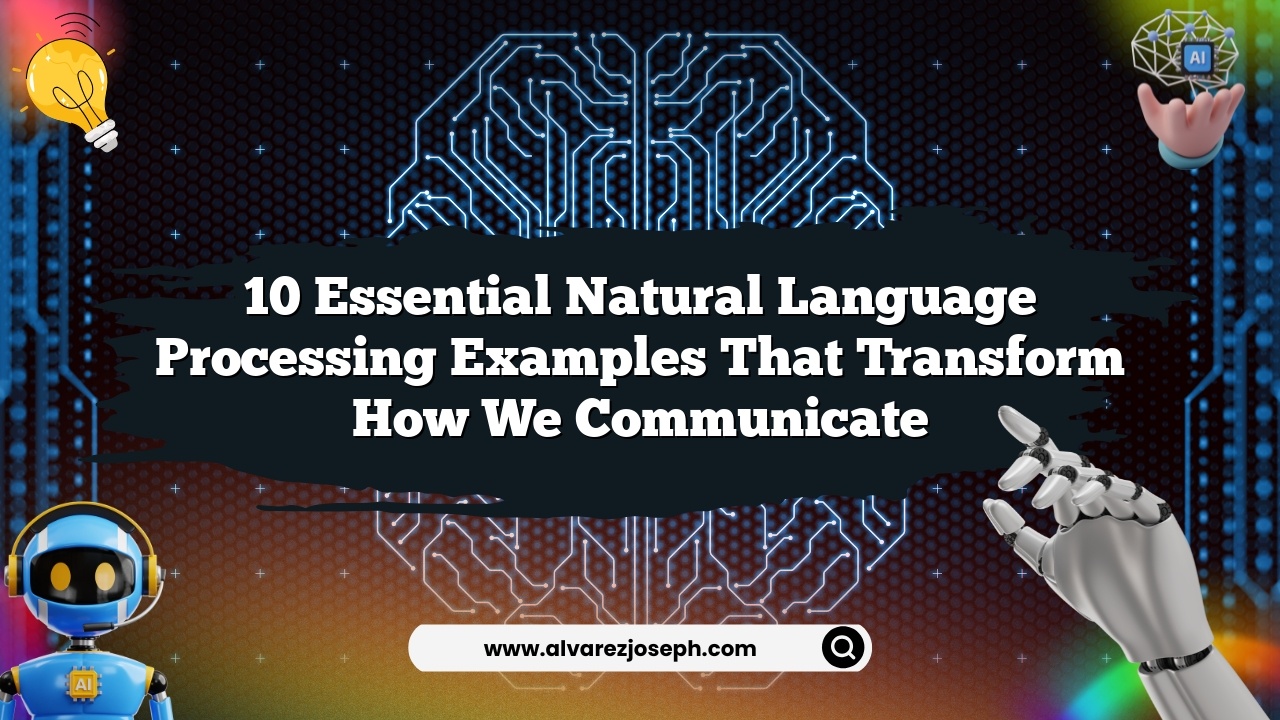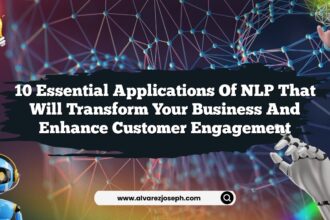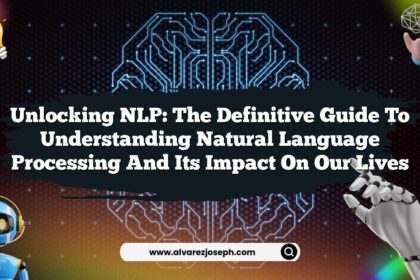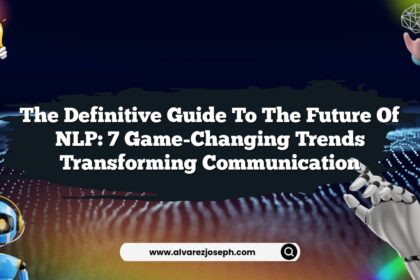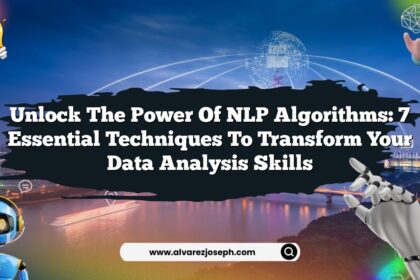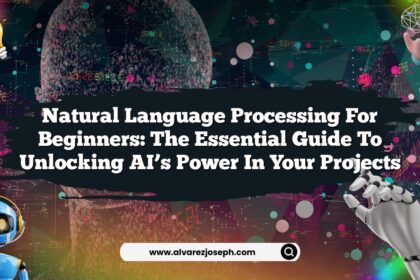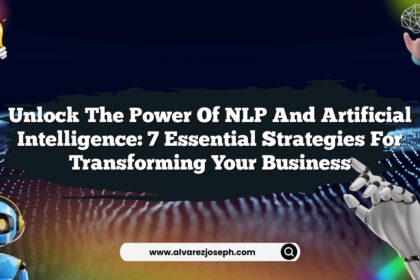Have you ever wondered how your digital assistant knows what you want to say before you even finish typing? Or how Netflix seems to predict your next binge-worthy series? The truth is, the magic behind these tailored experiences lies in Natural Language Processing (NLP). This fascinating technology not only shapes how we interact with machines but also transforms the very fabric of our communication. Let’s embark on a journey through ten essential examples of NLP that are redefining our conversational experiences in ways we might not even realize.
Transforming Communication: The Journey of NLP
Natural Language Processing is an extraordinary intersection of linguistics, computer science, and artificial intelligence, allowing computers to understand, interpret, and generate human language. The applications of NLP are vast and varied, each contributing to a more intuitive and responsive digital landscape.
-
Chatbots: Your Personal Assistants
Imagine a world where your questions receive instant answers, day or night. Chatbots have become vital in customer service, handling inquiries with the efficiency of a seasoned representative. They can engage in conversations, provide product information, and even troubleshoot issues—all while learning from previous interactions. Companies like Sephora and H&M utilize chatbots to help customers make purchases, ensuring that shopping is as easy as a few taps on your phone.But what happens when you ask a chatbot a question it doesn’t understand? More often than not, it hilariously misinterprets your request, leaving you scratching your head. But this isn’t where the story ends! As technology advances, these digital assistants are getting smarter, making conversations feel increasingly natural.
-
Sentiment Analysis: Understanding Feelings
Have you noticed how social media platforms seem to know just how you feel? That’s sentiment analysis at work. By analyzing the emotions behind words, NLP tools can determine whether a piece of text conveys positivity, negativity, or neutrality. Businesses use this information to gauge customer feedback on products or services and tailor their strategies accordingly.For instance, if there’s an outpouring of love for a new sneaker launch on Twitter, brands can capitalize on this insight to boost marketing efforts. Real-time sentiment analysis can even predict trends before they go viral, giving companies a competitive edge. Imagine having your finger on the pulse of public emotion. How could that change the way you run your business?
-
Voice Assistants: Conversational Companions
Siri, Alexa, and Google Assistant—these voice-activated friends have become staples in our daily lives. At the heart of their functionality is NLP, enabling them to process spoken language, understand context, and respond in a human-like manner. Need weather updates while cooking? Just ask!The magic lies in the intricacies of speech recognition and processing. How do they pick up on accents or dialects? That’s the beauty of machine learning algorithms continuously refining their capabilities. Still, there’s always that one moment when they hilariously misinterpret your request. "Turn on the living room light" turns into "Serve me a slice of pie." Close, but not quite!
-
Language Translation: Breaking Barriers
Traveling abroad? No problem! NLP-powered translation tools have revolutionized how we communicate across languages. Applications like Google Translate use NLP techniques to provide instant translations, making it easier to navigate foreign countries and cultures.While these tools are impressively accurate, they aren’t infallible. Ever tried translating a complex idiom? You might end up with something that sounds utterly nonsensical. "It’s raining cats and dogs" might simply turn into "It’s precipitating animals." Not quite what you meant, right? The potential for improvement in this area is immense, and developers are continuously working to enhance accuracy and context.
-
Content Recommendation: Personalized Experiences
Ever felt like Netflix just gets you? That’s the power of NLP in action! Content recommendation systems analyze your viewing history, preferences, and even what you talk about online to suggest movies and shows you’ll likely enjoy.This personalized experience enhances user engagement, keeping viewers glued to their screens. Imagine scrolling through endless options without ever finding something that interests you. Thanks to NLP, you’re more likely to hit play on a title you’ll love. But what about those guilty pleasure shows you don’t want anyone to know you watch? Rest assured, your secret is safe!
-
Social Media Monitoring: Keeping Brands in Check
For businesses, understanding what customers say about them online is crucial. NLP tools help brands monitor social media conversations, allowing them to respond quickly to feedback—be it praise or criticism.This active engagement can prevent potential PR disasters and cultivate loyalty among customers. Picture this: a customer tweets a complaint about a service mishap, and before they can refresh their feed, the brand has already apologized and offered a solution. That’s the kind of responsiveness that builds trust!
-
Text Summarization: Saving Time and Effort
In our fast-paced world, time is of the essence. NLP allows for automatic text summarization, distilling lengthy articles or reports into digestible summaries. This technology is especially helpful for busy professionals or students needing quick insights.Imagine having a 20-page research paper summarized in a few paragraphs. How much time would that save? But beware! Sometimes, these summaries can oversimplify critical points, leaving out essential details you may have wished to know. It’s a delicate balance between brevity and comprehensiveness!
-
Email Filtering: A Sigh of Relief
If you’ve ever faced a mountain of emails and wondered how to tackle it, NLP has your back. Email filtering systems use NLP to categorize incoming messages, identifying spam, promotional, or important emails.This process not only saves time but also reduces the risk of missing vital communications. Have you ever found a buried email that contained golden information? Thanks to NLP, you’re less likely to miss that crucial message from your boss about the big project. Still, the occasional spam email sneaks through—like a persistent telemarketer!
-
Fraud Detection: Keeping Your Transactions Safe
In the era of digital banking, keeping your information secure is paramount. NLP plays a role in fraud detection by analyzing transaction patterns and identifying anomalies.For instance, if you suddenly make a purchase in a different country while your last transaction was in your hometown, the system flags it for review. Imagine the peace of mind knowing that technology is working tirelessly to protect your finances!
-
Healthcare Applications: Revolutionizing Patient Care
In healthcare, NLP holds the potential to transform patient care. From analyzing patient records to enhancing communication between doctors and patients, this technology is changing the landscape of healthcare.For example, NLP can analyze patient notes and flag critical health issues that need immediate attention. This application ensures patients receive timely care, improving outcomes and saving lives. What if a simple note could lead to a diagnosis that saves someone’s life? That’s the impressive power of NLP!
Quick Summary
- Chatbots enhance customer service with instant responses.
- Sentiment Analysis gauges public opinion and feedback.
- Voice Assistants enable hands-free communication and ease of use.
- Language Translation breaks down language barriers for global communication.
- Content Recommendation tailors user experiences on platforms like Netflix.
- Social Media Monitoring helps brands engage with customers effectively.
- Text Summarization saves time by condensing information.
- Email Filtering organizes your inbox and reduces spam.
- Fraud Detection safeguards your financial transactions.
- Healthcare Applications improve patient care through advanced data analysis.
Frequently Asked Questions
What is Natural Language Processing?
NLP is a technology that enables computers to understand and generate human language, facilitating more intuitive human-computer interactions.
How does sentiment analysis work?
Sentiment analysis uses algorithms to assess the emotional tone of text, categorizing it as positive, negative, or neutral.
Can chatbots really understand complex queries?
While chatbots are getting smarter, they can sometimes struggle with nuanced or complex questions. The technology is evolving rapidly, though!
How accurate are translation tools?
Translation tools have improved significantly, but they can still falter with idioms, cultural nuances, and context.
What is the role of NLP in healthcare?
NLP in healthcare helps analyze patient data, improving communication and identifying critical health issues for timely intervention.
How do email filters work?
Email filters utilize NLP to categorize incoming messages, helping to distinguish between important correspondence and spam.
In the end, the world of Natural Language Processing is a delightful blend of technology and communication, waiting to shape new experiences. Just think about it: how might your life change as these innovations continue to evolve? The future is bright, and NLP is just getting started!

